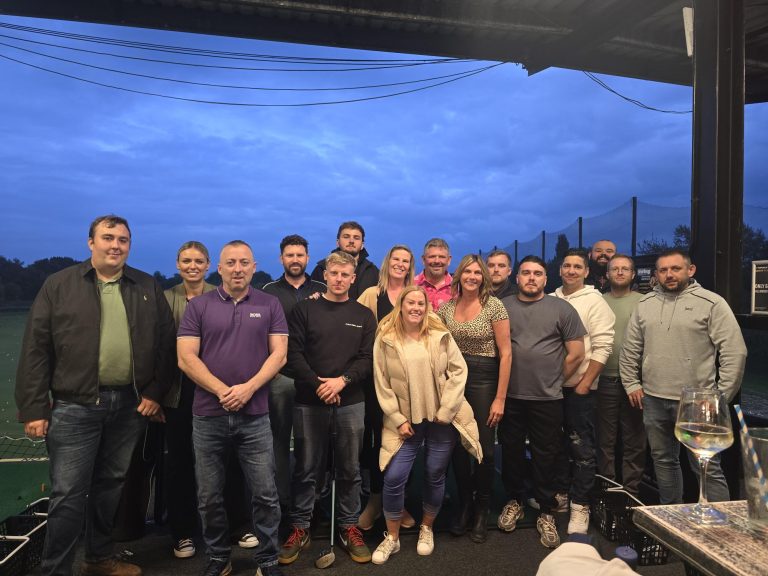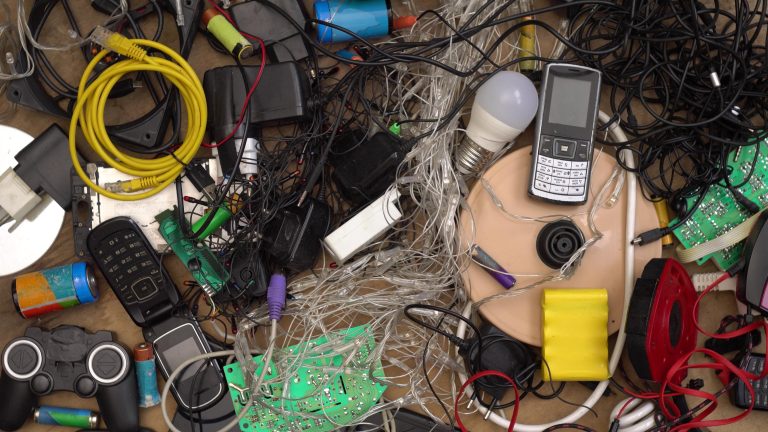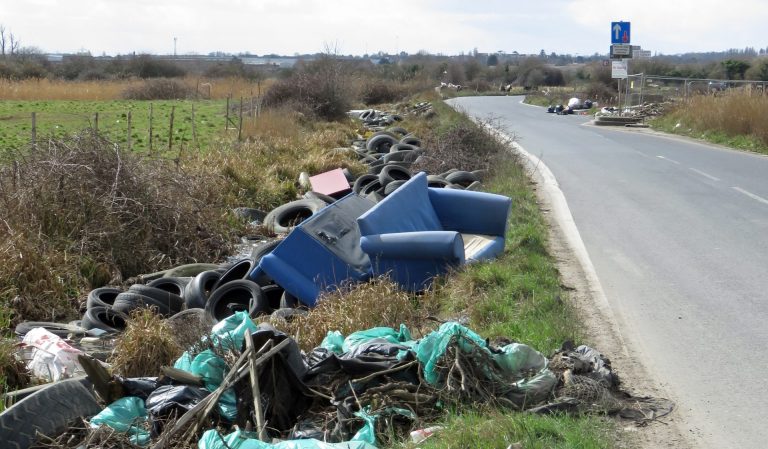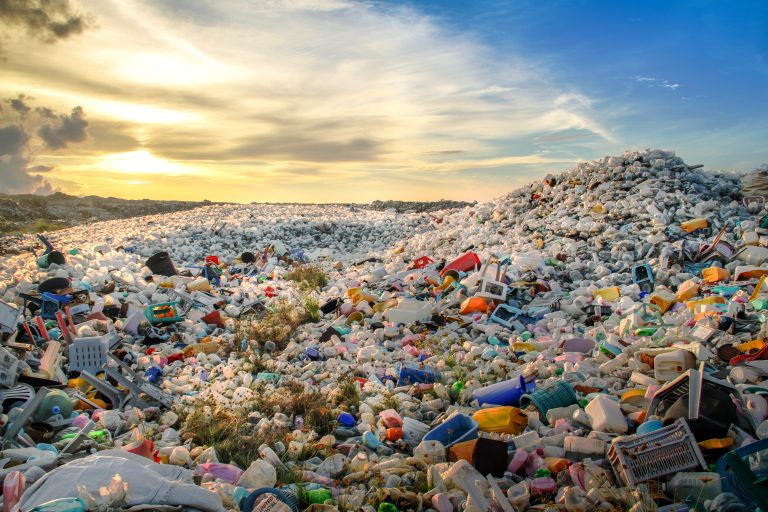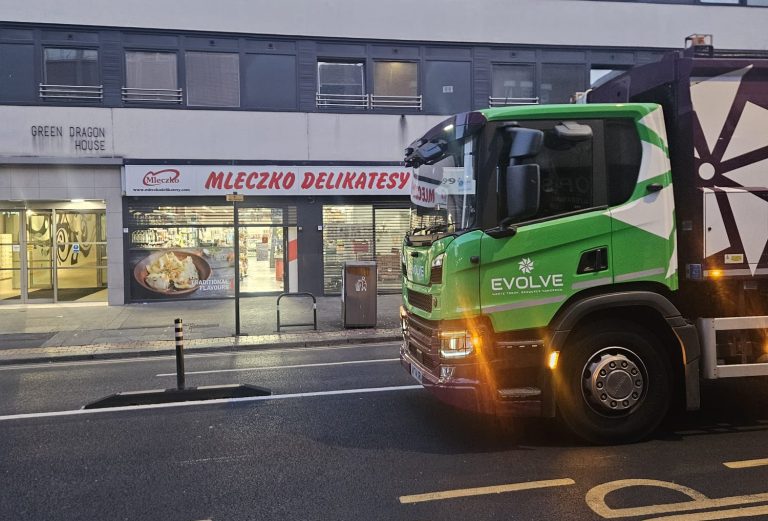Following the UK’s ban on single-use vapes that came into force on 1 June 2025, understanding proper vape disposal has become more crucial than ever. At Evolve Waste Solutions, we recognise the importance of responsible electronic waste management, particularly for complex devices like vapes that contain batteries, metals and plastics requiring specialist handling.
Why Vape Recycling Matters
Before the ban, nearly 5 million disposable vapes were discarded each week in the UK, creating a significant environmental challenge. Vapes cannot go in your rubbish or recycling bin because they contain lithium-ion batteries and electronic components that require specialist processing.
The environmental impact extends beyond littering. Vapes contain valuable materials like lithium, copper, and rare earth elements that can be recovered when processed correctly. Improper disposal also creates fire risks, as damaged lithium-ion batteries can overheat and ignite in waste collection vehicles and processing facilities.
Understanding the Single-Use Vapes Ban
On 1 June 2025, it became illegal for businesses to sell or supply all single-use vapes. However, the ban is NOT on all vapes. Reusable products remain available. For consumers, any remaining single-use vapes must be disposed of through proper recycling channels.
Where to Recycle Vapes
Household Waste Recycling Centres (HWRCs)
The most common recycling option is placing vapes in Waste Electrical and Electronic Equipment (WEEE) bins at recycling centres. Look for battery recycling points or electronic waste facilities at your local HWRC.
Retail Take-Back Programs
The easiest disposal method is returning vapes to shops that accept old electricals for recycling. Under WEEE regulations, retailers selling electrical equipment must provide take-back services for similar items. Many vape shops, electronics retailers and some supermarkets accept old vapes.
Specialist Recycling Services
Professional waste management companies like Evolve Waste Solutions provide tailored collection services. Whether it’s a small vape box for an office or large containers for high volumes, Evolve can provide a solution.
The Vape Recycling Process
At recycling centres, built-in batteries are removed and devices are broken down by machine and by hand. Components are sorted into different materials – metals and plastics – then cleaned. Recoverable materials are sent to specialists.
Lithium-ion batteries contain valuable materials including lithium, cobalt and nickel. Once extracted, they’re processed at specialist facilities where metals are recovered for new batteries. Remaining components are mechanically processed to separate plastics and recover electronic materials.
What NOT to Do with Old Vapes
Never Put Vapes in Household Bins
Don’t throw vapes in regular rubbish bins. They contain batteries and electronic components that can cause fires in waste collection vehicles and processing facilities. Regular waste streams can’t safely handle the fire risk or recover valuable materials.
Avoid DIY Disassembly
Never attempt to separate batteries from vape bodies yourself. Lithium-ion batteries can be dangerous if punctured, potentially causing fires or releasing toxic gases. Leave disassembly to trained professionals.
Don’t Mix with Other Recycling
Vapes should never go in standard household recycling bins with paper, plastic, or glass. Electronic components require different processing methods and can contaminate other recycling streams.
Business Responsibilities
Businesses face additional compliance requirements. The Office for Product Safety and Standards may take action against businesses without safe vape recycling procedures.
Under WEEE regulations, businesses must comply with proper collection, treatment and recycling requirements, maintaining disposal records and using authorised treatment facilities. Fire safety considerations require proper storage procedures, appropriate containers and regular collection schedules.
Environmental Benefits
Resource Recovery
Proper recycling recovers valuable materials that would otherwise be lost in landfills. Lithium is essential for renewable energy storage systems and recovering these materials reduces mining operations while building a circular economy.
Pollution Prevention
Incorrect disposal can cause battery chemicals to leak into soil and groundwater. Proper recycling prevents contamination while ensuring safe handling of toxic materials by trained professionals.
Finding Local Recycling Options
Use your postcode to find your nearest recycling point through resources like the Recycle Your Electricals website and local authority directories. Consider factors like opening hours, accepted materials and any charges. Many facilities offer free disposal for small quantities of electronic waste.
Taking Action
Proper vape disposal starts with understanding local options and making responsible electronic waste choices. Whether disposing of single devices or managing business compliance, professional guidance ensures legal compliance while maximising environmental benefits.
Does your business need a compliant recycling collection for vapes? Contact our team today who can help you with a solution to suit the volume you produce


